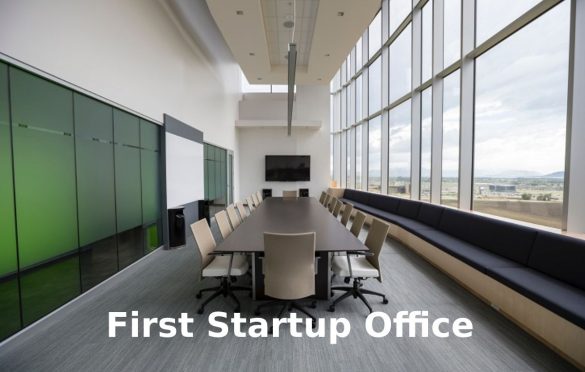
10 Things To Consider When Opening Your First Startup Office
The first startup office is a project undertaken by an entrepreneur to seek, develop, and validate a scalable economic model.
While entrepreneurship refers to all new businesses, including self-employment and businesses that never intend to become registered, startups refer to new companies that want to grow significantly beyond the solo founder.
In the beginning, startups face high uncertainty and have high failure rates, but a minority of them become successful and influential. Some startups become unicorns; that is, privately held startup companies valued at over US$1 billion.
Setting up the first place of business is a significant endeavor. Apart from costing a lot of money upfront, it takes incessantly to find a perfect location and organize the work. On the other hand, setting up a brick-and-mortar office with a plaque on the wall is a huge step in moving your business forward, so pay attention to these essential tips.
Table of Contents
1. Know Your Needs
Before you symbolize papers on the lease, you should consider why you need a physical space and how it will affect your operations and business practices. Also, it would help if you supposed about what can the new area do for you, your employees, your company, and your customers. With a clear idea and prospects from the beginning, you can make more brainy decisions ranging from the budget to the possessions of space you’re looking for.
2. Location Is King
While the geographical location is undoubtedly important, you also need to consider whether customers can get to it quickly and whether it offers enough parking spots or public transport lines for your staff. It assists if the office is in an area where you can soon recruit new talent and close to an airport or other transportation and shipping services you may need.
3. Determine Your Budget
The size of your budget will control where to look for properties, organize the move, and set up the new space with proper gear. Stay honest by hand and your credit limit on what you can and can’t have enough money, as well as how to assign the resources. Your budget should also cover possible alters and setting up utilities at the new address.
4. Lease Or Buy
Every option of touching into a new office space comes with its pros and cons. Working with your real estate agent and bookkeeper, you should figure out the best way to fund the move and the new space, which will mechanically narrow down your selections. You may get a clearer image if you focus on basic supplies only, at least initially.
5. Plan For Growth

As your business keeps rising out of your pace, it doesn’t mean you should move every few years. A great site is hard to come by, so make sure it delivers room to enlarge. In expansion, take advantage of skills that allow for reduced building times and consider precast concrete panels superior to traditional concrete. Factory-made and cured off-site, these panels speed up the completion of extension projects.
6. Hedge Against Hidden Costs
When it comes to real estate, possible hidden costs include repairs that you’ll be taking on as a new responsibility or the possibility of increasing rental rates. By looking ahead, you’ll see if the office suits your cheap now and in the future. A commercial real estate go-between can give you a lot of skulls up on the stuff you’re interested in, as well as development plans for the neighborhood.
7. Work Out The Move
When you’ve established down with a new space, you must figure out the best way to organize the move. It including what wants to be done before and immediately after the actual move. You can execute the action yourself, relying on your workforce and equipment, rent a moving truck, or hire a professional moving crew with their vehicle.
8. Mind Your Employees
Apart from concentrating on how the move will affect your business, it would be best to consider how it affects the people who work for you professionally and personally. For example, employee output and satisfaction will be affected if they commute significantly longer to the new workplace.
9. Have The Services Connected
Although you’re going to change all your furniture and gear to the first startup office. And also, set it up in a functional layout, you’ll need to have services set up again before you start working again. Apart from values like water, electricity, and gas, these comprise the internet and other telecommunications.
10. Announce The Move

Update the contact info on all your company materials and presentations, like your business cards, website, and schedules. And make sure you notify your current customers where to find you. At a similar time, plan for a new campaign proclaiming that you’re open in a new area.
Opening the first office needs a lot of input and provision from different parties. To make everything as well-organized and straightforward as possible, focus on creating a layout. And workflow that supports your business’s primary tasks and increases productivity from day one.
Also Read: What is Business Innovation? – Importance, Types, and More
Related Searches to First Startup Office
[how to twitch a startup business in india]
[startup india]
[entrepreneur first]
[startup india registration eligibility]
[startup india registration online]
[opening a new office checklist]
[how to twitch a startup in india with no money]
[dipp startup registration]
[dipp registration for proprietorship]
[dipp startup registration login]
[dipp startup definition]
[list of dipp recognised startups]
[dipp number search]
[dpiit recognized startup list]
[dipp registration form]
[dipp registration login]


